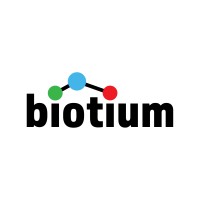Kallikrein 3 Monoclonal / APC / KLK3/801
Product Details
| Description | Mouse Monoclonal anti-PSA (Prostate Specific Antigen) (KLK3/801) | |
|---|---|---|
| Conjugate | APC | |
| Clone | KLK3/801 | |
| Target Species | Human | |
| Applications | FC, IF, IHC-P | |
| Supplier | Biotium | |
| Catalog # | Sign in to view product details, citations, and spectra | |
| Size | ||
| Price | ||
| Antigen | ||
| Host | ||
| Isotype |
About Kallikrein 3
Kallikreins are a subgroup of serine proteases having diverse physiological functions. Growing evidence suggests that many kallikreins are implicated in carcinogenesis and some have potential as novel cancer and other disease biomarkers. The gene is one of the fifteen kallikrein subfamily members located in a cluster on chromosome 19. It encodes a single-chain glycoprotein, a protease which is synthesized in the epithelial cells of the prostate gland, and is present in seminal plasma. It is thought to function normally in the liquefaction of seminal coagulum, presumably by hydrolysis of the high molecular mass seminal vesicle protein. The serum level of this protein, called PSA in the clinical setting, is useful in the diagnosis and monitoring of prostatic carcinoma. Alternate splicing of this gene generates several transcript variants encoding different isoforms. [provided by RefSeq, Dec 2019]
Kallikreins are a subgroup of serine proteases having diverse physiological functions. Growing evidence suggests that many kallikreins are implicated in carcinogenesis and some have potential as novel cancer and other disease biomarkers. The gene is one of the fifteen kallikrein subfamily members located in a cluster on chromosome 19. It encodes a single-chain glycoprotein, a protease which is synthesized in the epithelial cells of the prostate gland, and is present in seminal plasma. It is thought to function normally in the liquefaction of seminal coagulum, presumably by hydrolysis of the high molecular mass seminal vesicle protein. The serum level of this protein, called PSA in the clinical setting, is useful in the diagnosis and monitoring of prostatic carcinoma. Alternate splicing of this gene generates several transcript variants encoding different isoforms. [provided by RefSeq, Dec 2019]
About APC
Allophycocyanin (APC) is a fluorescent protein derived from cyanobacteria and red algae and a potent donor fluorophore to create tandem dyes that can be excited off the 633-640 nm laser. APC has an excitation peak at 650 nm and a emission peak at 660 nm.
Allophycocyanin (APC) is a fluorescent protein derived from cyanobacteria and red algae and a potent donor fluorophore to create tandem dyes that can be excited off the 633-640 nm laser. APC has an excitation peak at 650 nm and a emission peak at 660 nm.
Experiment Design Tools
Panel Builders
Looking to design a Microscopy or Flow Cytometry experiment?
Validation References
Reviews & Ratings
| Reviews |
|---|
Looking for more options?
951 Kallikrein 3 antibodies from over 23 suppliers available with over 52 conjugates.





